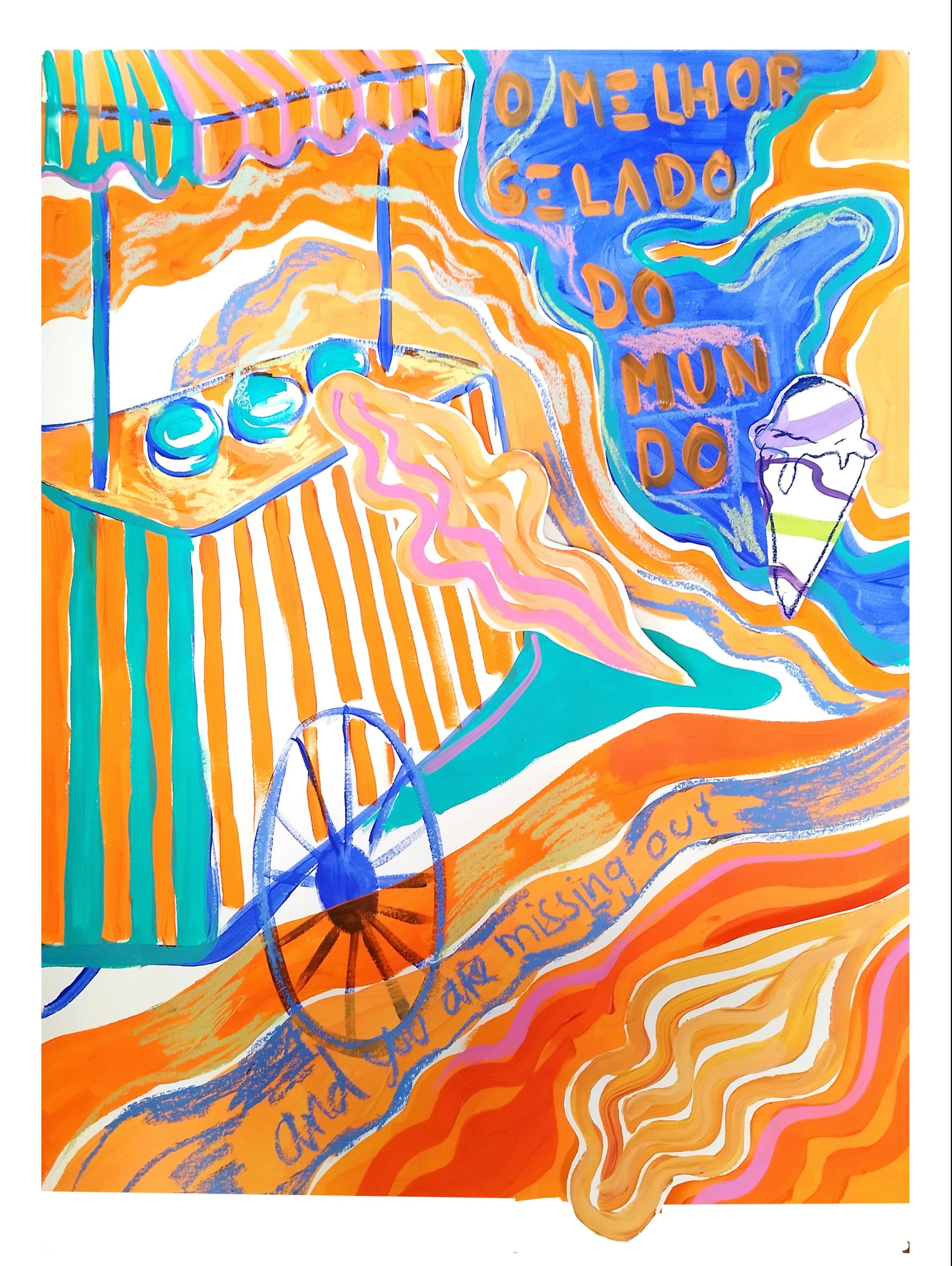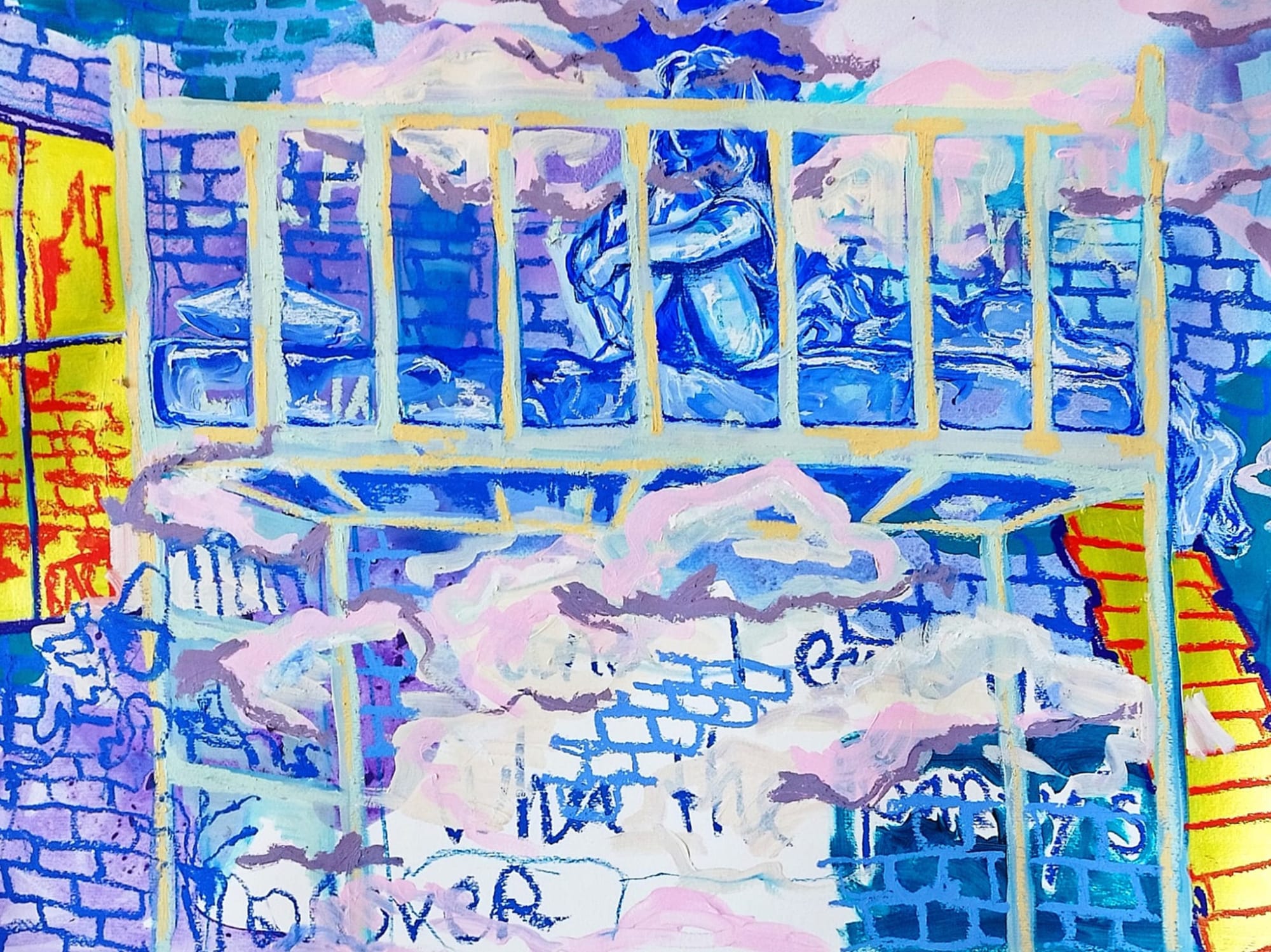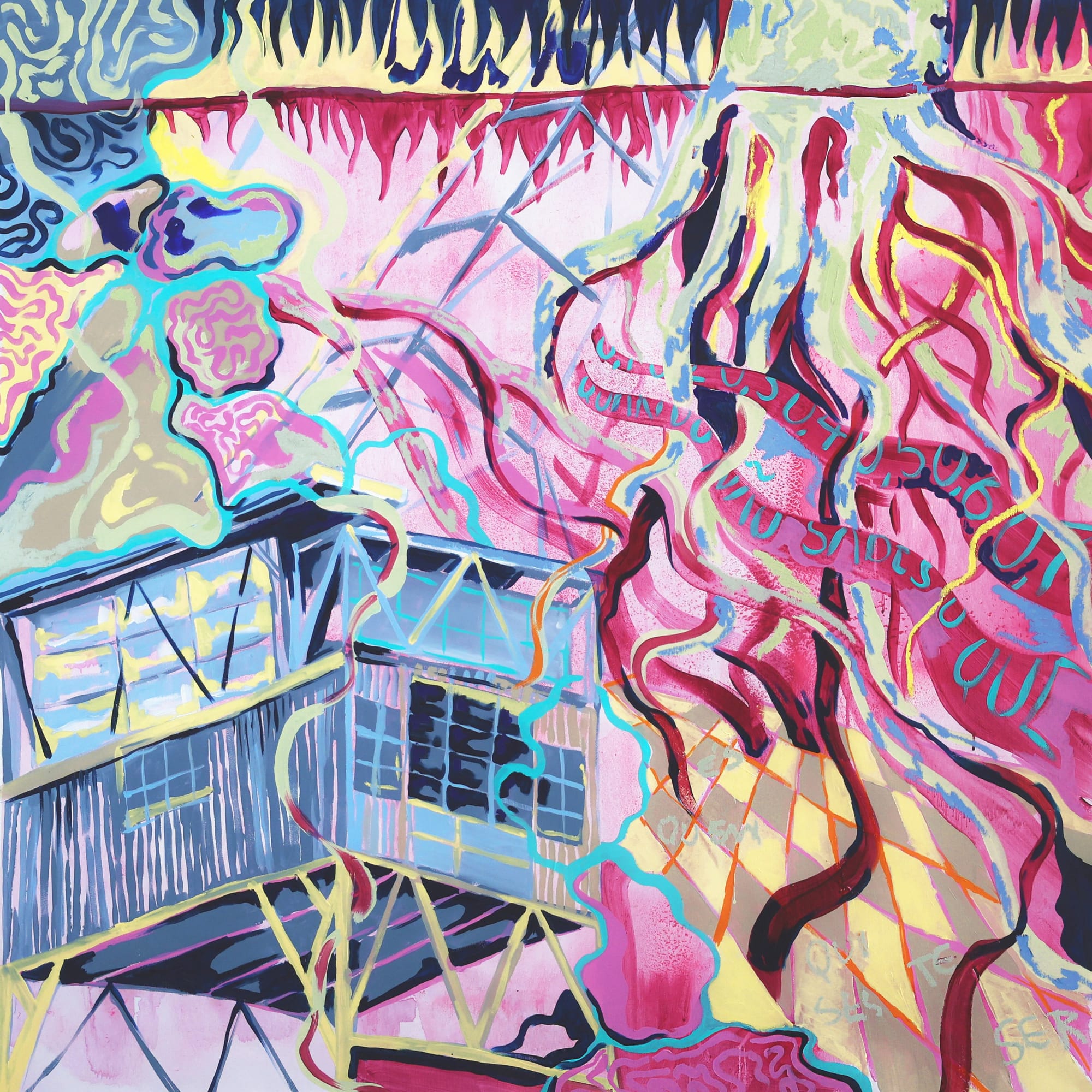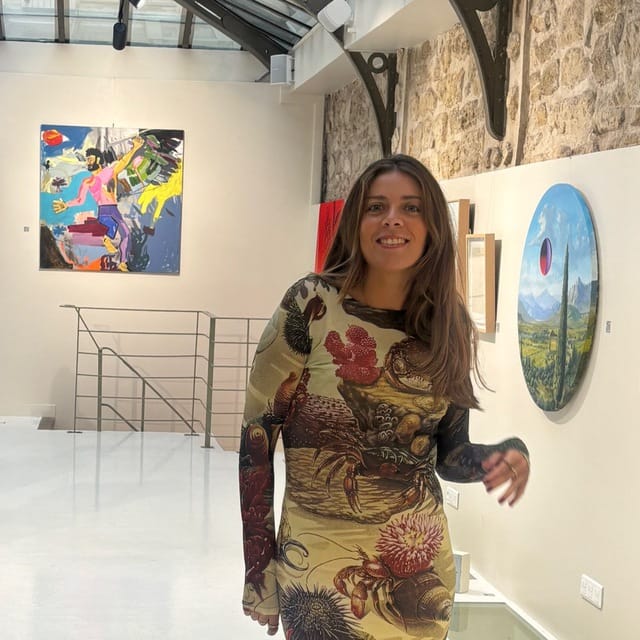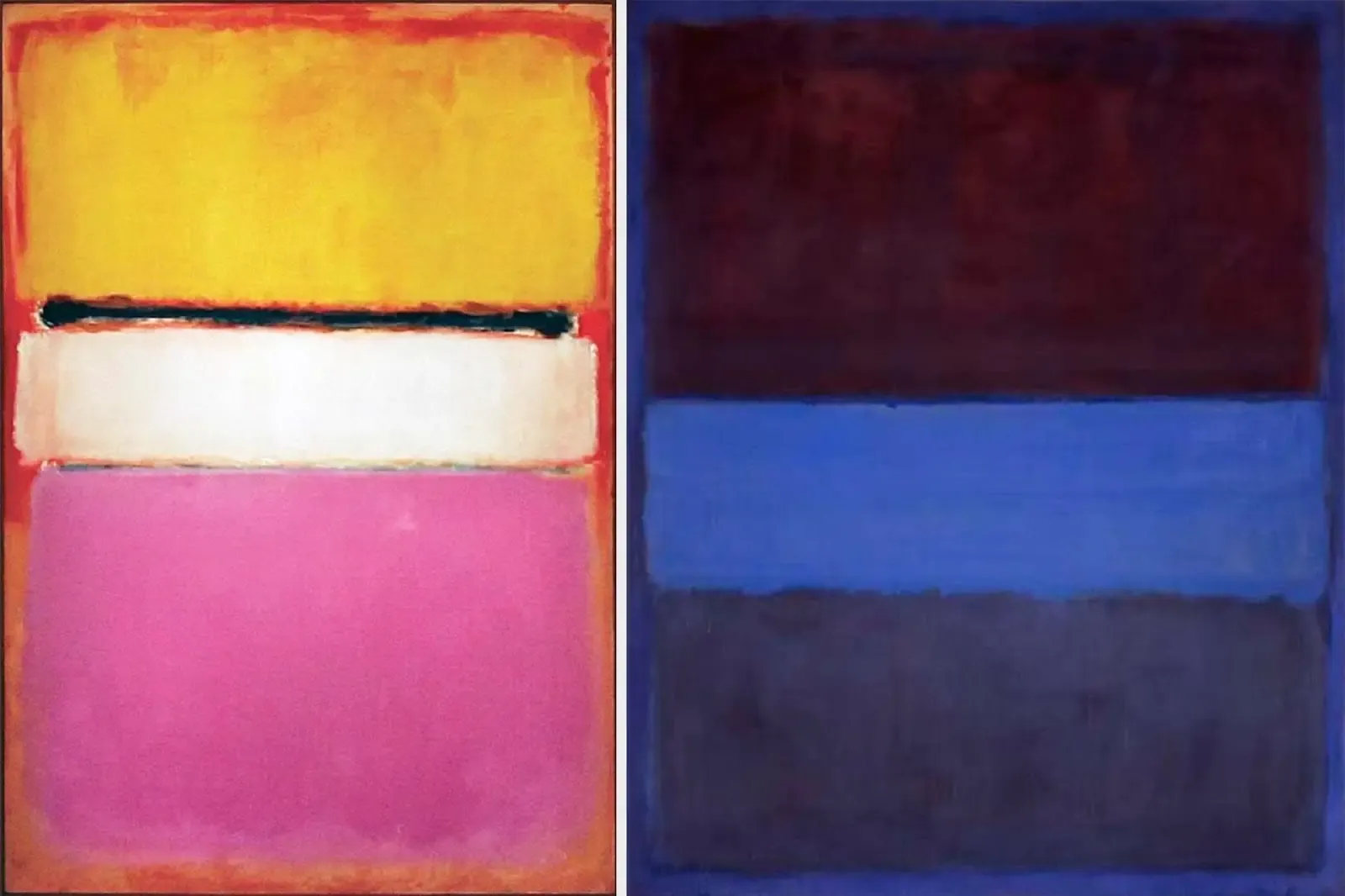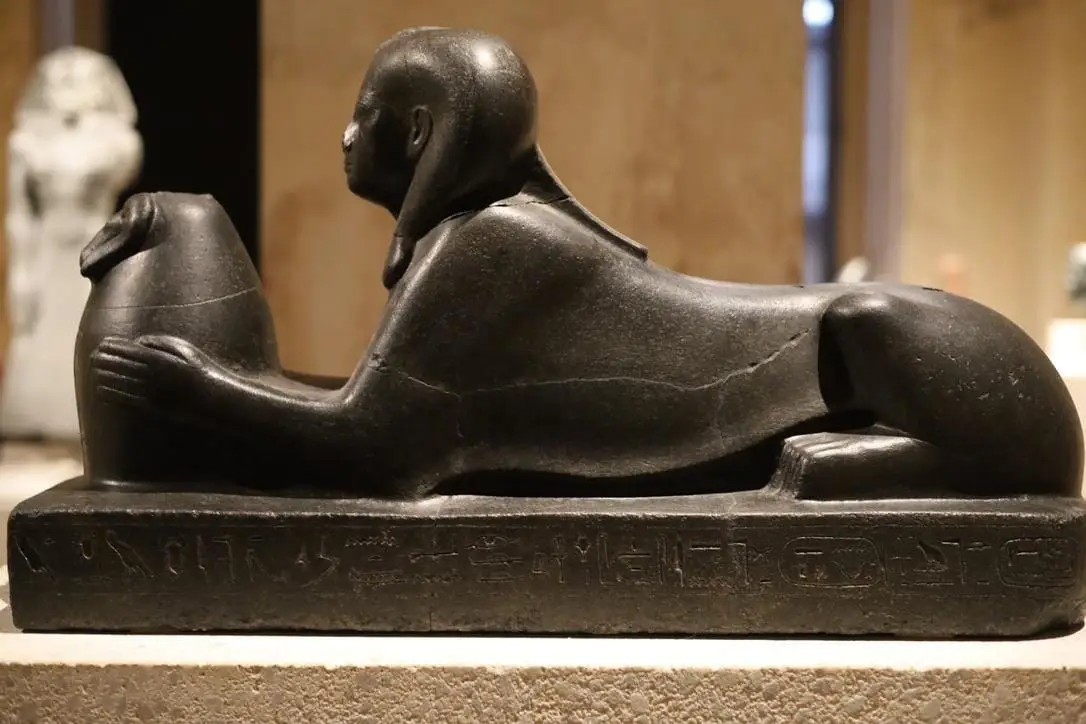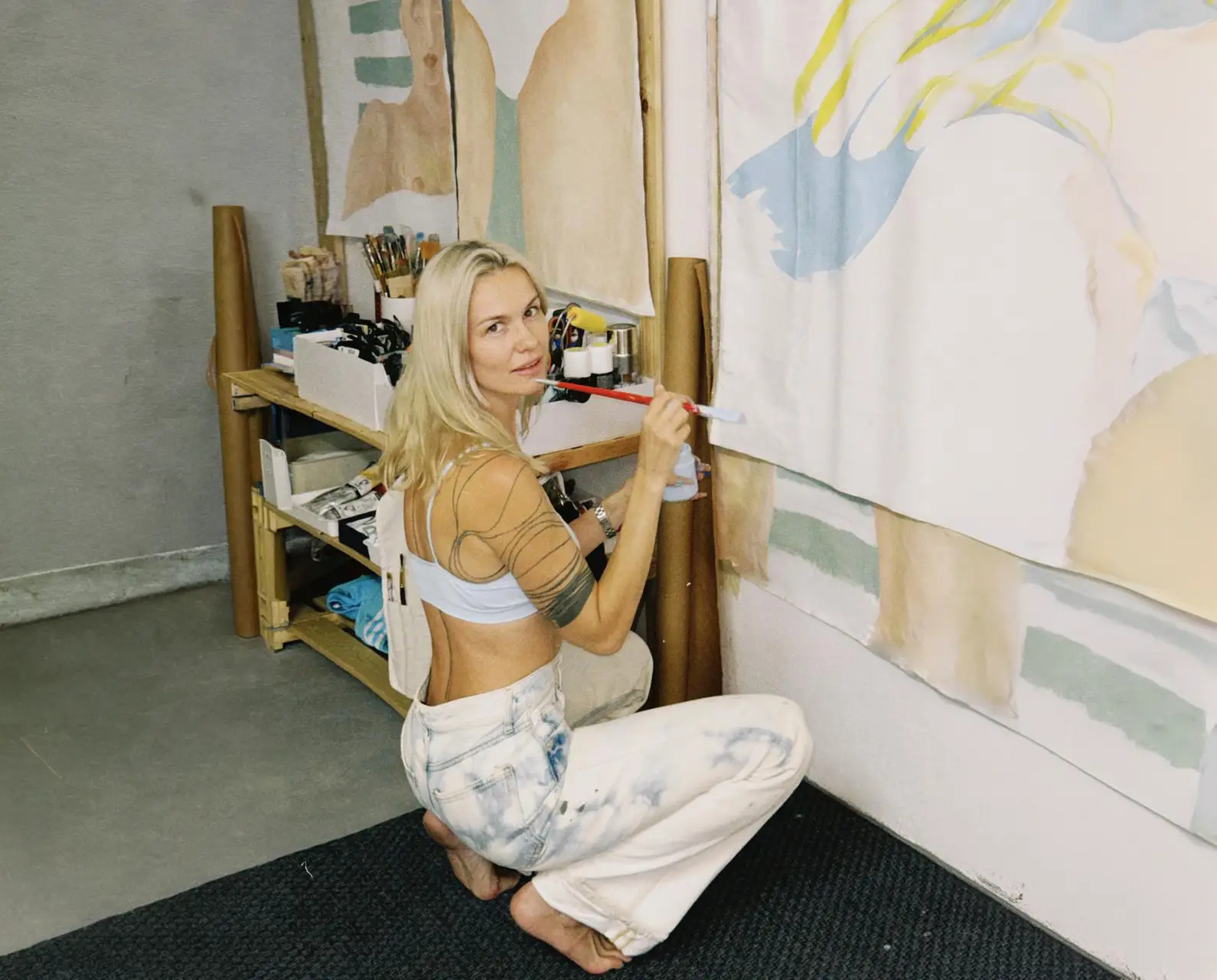Three questions to Madalena Pequito
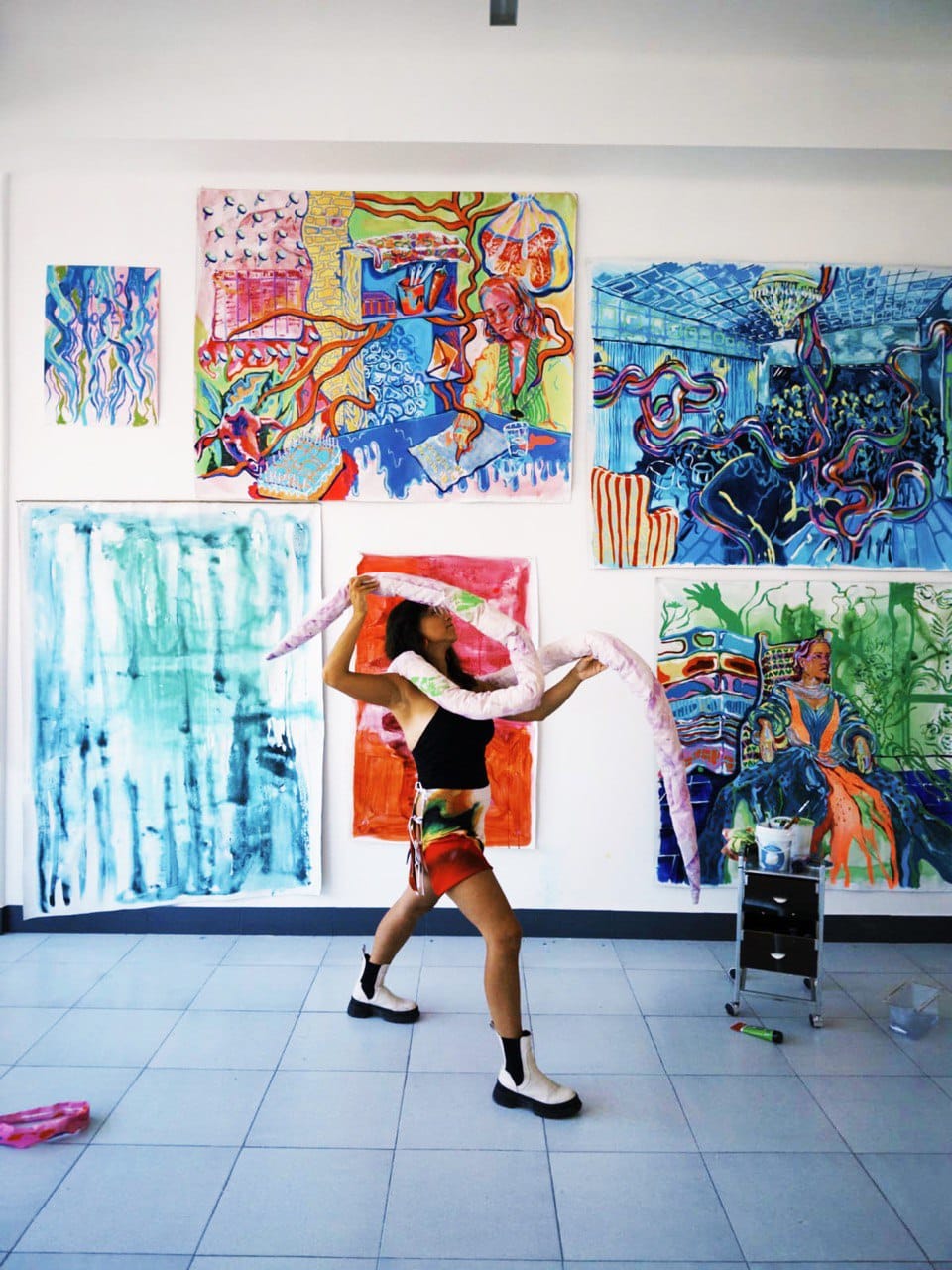
About Madalena Pequito
Madalena Pequito (Lisbon, 1996) is a visual artist currently working at FANICO studio. Throughout her career, she has fostered dialogue with other artists and key figures in the art scene, notably through the collective Vês. Três.
Her work addresses themes such as identity, cultural differences, and collective memory. She explores the analogy between tree roots and human relationships, reflecting on the preservation of families, cultures, and the struggle for identity. Her pieces also reveal the challenges of an artistic path - including sacrifices, insecurities, and fears — and extend beyond painting by exploring space through pictorial installations.
Madalena, when did art meet you in life? Tell us about your journey
Art has always been part of my life—it was never something I had to look for, it just was. Since I can remember, I’ve loved painting, drawing, writing poems, and performing (even if just for my family in the living room!). It was just what I naturally gravitated toward.
I used to spend hours drawing, completely absorbed, and my parents noticed. They asked if I’d like to take painting classes, and I started attending them after school when I was still very young. My mom also played a huge role—she would take me to museums almost every weekend, especially to the activities organized by the educational programs for kids.
That love for the arts never faded. After 9th grade, I made the decision to fully embrace it and study at Escola Artística António Arroio, where I focused on costumes and scenography—combining my love for performance with visual storytelling. But painting was always calling me, so after that, it felt only natural to go to Faculdade de Belas Artes de Lisboa to study painting.
And from there I just never stopped.
Your work reveals a strong connection to nature and organic forms. How does being born and raised in Portugal influence your artistic vision and creative process?
I’ve always been drawn to contrast—whether it’s in color, form, texture, or meaning. I love the dialogue between the industrial and the natural—the geometry of fences and containers against the wildness of trees and roots. There's something powerful in that tension.
Growing up in Portugal, surrounded by so many different landscapes—urban, rural, coastal—it taught me to pay attention to the layers in everything. I’m especially fascinated by the way nature persists in cities. I love how tree roots push through the concrete, quietly breaking sidewalks in this resilient, poetic rebellion.
My art is deeply influenced by my surroundings, my experiences, and the people I’ve crossed paths with. I let my life and my experiences influence my paintings, so I guess everywhere I’ve been and the people I’ve met are a crucial factor.
Your art often addresses social change concerns. How do you see your work contributing to contemporary conversations about social issues that matter to you?
I’m a very emotional person, and I process the world through feelings. When something moves me I feel this urge to express it. Painting becomes a way to release, like venting to a friend. It helps me understand and cope with what’s happening around me.
Art has this unique way of telling stories. It can open doors that words sometimes can’t. I’ve noticed that even when I address heavy or uncomfortable topics, people are often more open to engage with a painting. It creates a space for conversation.
I don’t know how I am contributing, I am using my voice in the way that I can. What impact does sit have? What is my role in this world? I honestly don’t know. I am doing what comes to me naturally and naturally, I can’t be silent and I can’t be indifferent.
Our top selection of Madalena's works
